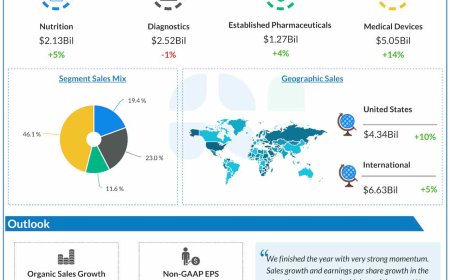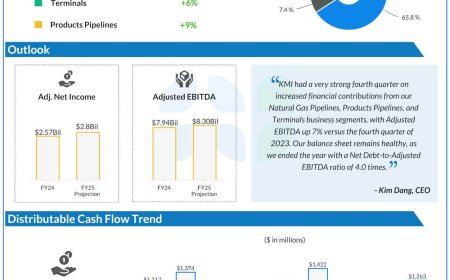Domestic Futures Slip Ahead of Inflation Data
Futures linked to Canada's main stock index nudged lower on Tuesday as oil and gold prices eased, while investors focused on domestic inflation data and the U.S. Federal Reserve's monetary policy meeting on Wednesday. The TSX shed 127.09 points to close Monday at 25,147.21. The Canadian dollar slipped 0.22 cents to 70.03 cents U.S. Futures were off 0.2% Tuesday. The main stock index ended 0.5% lower on Monday, at a near four-week low, after the abrupt resignation of Finance Minister Chrystia Freeland. Public Safety Minister Dominic LeBlanc was quickly named as finance minister of the minority Liberal government. Freeland's resignation left the government adrift less than a month before the inauguration of a new U.S. administration that could impose crippling sanctions on Canadian exports. Canada's fiscal deficit for the year ended March came in at $61.9 billion - about 50% more than what was projected, according to the Fall Economic Statement. In economic news, Statistics Canada’s Consumer Price Index rose 1.9% on a year-over-year basis in November, down from a 2.0% increase in October. On a seasonally adjusted monthly basis, the CPI rose 0.1% in November. Elsewhere, the agency said foreign investors increased their exposure to Canadian securities by $21.5 billion in October, a second consecutive month marked by significant investment activity. Meanwhile, Canadian investors reduced their holdings of foreign securities by $2.6 billion, the first divestment since January. Lastly, the new housing price index edged up 0.1% on a month-over-month basis in November. Prices were up in eight of the 27 census metropolitan areas surveyed, while prices were unchanged in 15 CMAs and declined in four. ON BAYSTREET The TSX Venture Exchange slid 6.59 points, or 1.1, Monday to 601.25 ON WALLSTREET Stock futures fell Tuesday after the Dow Jones Industrial Average registered its longest losing streak since 2018. Futures for the 30-stock faltered 164 points, or 0.4%, to 44,096. Futures for the S&P 500 retreated 17 points, or 0.3%, to 6,137 Futures for the tech-heavy NASDAQ fell 25.75, or 0.1%, to 22,382.75. The moves followed a mixed session on Wall Street. The Dow dipped 0.25%, or nearly 111 points, falling for an eighth straight day for the first time since June 2018. The NASDAQ Composite gained 1.2% and hit a fresh record, while the S&P 500 edged up nearly 0.4%. The gains for the S&P 500 and the Nasdaq came without the cooperation of market bellwether Nvidia, which pulled back 1.7%. Shares of the chip giant are down more than 4% this month, even as the broader indexes and semiconductor names such as Broadcom have touched new highs. Alphabet, Apple and Tesla also hit all-time highs on Monday, while the S&P’s tech and consumer discretionary sectors closed at records. Traders await the Federal Reserve’s next rate decision, slated at the conclusion of the central bank’s final 2024 two-day policy meeting Wednesday. The gathering kicks off Tuesday. Traders are pricing in a 95% chance of a quarter-point cut Wednesday. In Japan, the Nikkei 225 lost 0.2% Tuesday, while in Hong Kong, the Hang Seng stumbled 0.5% Oil prices dwindled 82 cents to $69.89 U.S. a barrel. Gold prices dulled $13.00 to $2,657 U.S. an ounce.

Futures linked to Canada's main stock index nudged lower on Tuesday as oil and gold prices eased, while investors focused on domestic inflation data and the U.S. Federal Reserve's monetary policy meeting on Wednesday.
The TSX shed 127.09 points to close Monday at 25,147.21.
The Canadian dollar slipped 0.22 cents to 70.03 cents U.S.
Futures were off 0.2% Tuesday.
The main stock index ended 0.5% lower on Monday, at a near four-week low, after the abrupt resignation of Finance Minister Chrystia Freeland. Public Safety Minister Dominic LeBlanc was quickly named as finance minister of the minority Liberal government.
Freeland's resignation left the government adrift less than a month before the inauguration of a new U.S. administration that could impose crippling sanctions on Canadian exports.
Canada's fiscal deficit for the year ended March came in at $61.9 billion - about 50% more than what was projected, according to the Fall Economic Statement.
In economic news, Statistics Canada’s Consumer Price Index rose 1.9% on a year-over-year basis in November, down from a 2.0% increase in October. On a seasonally adjusted monthly basis, the CPI rose 0.1% in November.
Elsewhere, the agency said foreign investors increased their exposure to Canadian securities by $21.5 billion in October, a second consecutive month marked by significant investment activity. Meanwhile, Canadian investors reduced their holdings of foreign securities by $2.6 billion, the first divestment since January.
Lastly, the new housing price index edged up 0.1% on a month-over-month basis in November. Prices were up in eight of the 27 census metropolitan areas surveyed, while prices were unchanged in 15 CMAs and declined in four.
ON BAYSTREET
The TSX Venture Exchange slid 6.59 points, or 1.1, Monday to 601.25
ON WALLSTREET
Stock futures fell Tuesday after the Dow Jones Industrial Average registered its longest losing streak since 2018.
Futures for the 30-stock faltered 164 points, or 0.4%, to 44,096.
Futures for the S&P 500 retreated 17 points, or 0.3%, to 6,137
Futures for the tech-heavy NASDAQ fell 25.75, or 0.1%, to 22,382.75.
The moves followed a mixed session on Wall Street. The Dow dipped 0.25%, or nearly 111 points, falling for an eighth straight day for the first time since June 2018. The NASDAQ Composite gained 1.2% and hit a fresh record, while the S&P 500 edged up nearly 0.4%.
The gains for the S&P 500 and the Nasdaq came without the cooperation of market bellwether Nvidia, which pulled back 1.7%. Shares of the chip giant are down more than 4% this month, even as the broader indexes and semiconductor names such as Broadcom have touched new highs. Alphabet, Apple and Tesla also hit all-time highs on Monday, while the S&P’s tech and consumer discretionary sectors closed at records.
Traders await the Federal Reserve’s next rate decision, slated at the conclusion of the central bank’s final 2024 two-day policy meeting Wednesday. The gathering kicks off Tuesday.
Traders are pricing in a 95% chance of a quarter-point cut Wednesday.
In Japan, the Nikkei 225 lost 0.2% Tuesday, while in Hong Kong, the Hang Seng stumbled 0.5%
Oil prices dwindled 82 cents to $69.89 U.S. a barrel.
Gold prices dulled $13.00 to $2,657 U.S. an ounce.











































